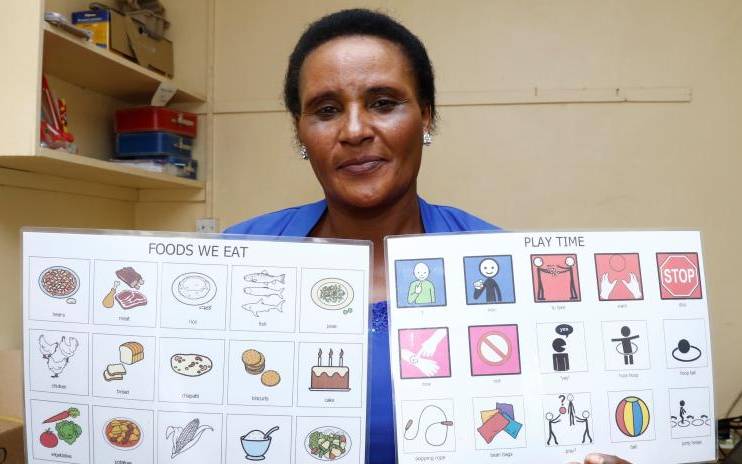×
The Standard e-Paper
Fearless, Trusted News

Nakuru Hills Special School Head Teacher Lucy Kihato displaying some of the Augmentative and Alternative Communication charts designed by education experts at Nakuru Hills Special School on February 28, 2019. [File, Standard]
As the Education Ministry announced the return of leaners to schools, the needs of Special institutions seemed to have been forgotten.